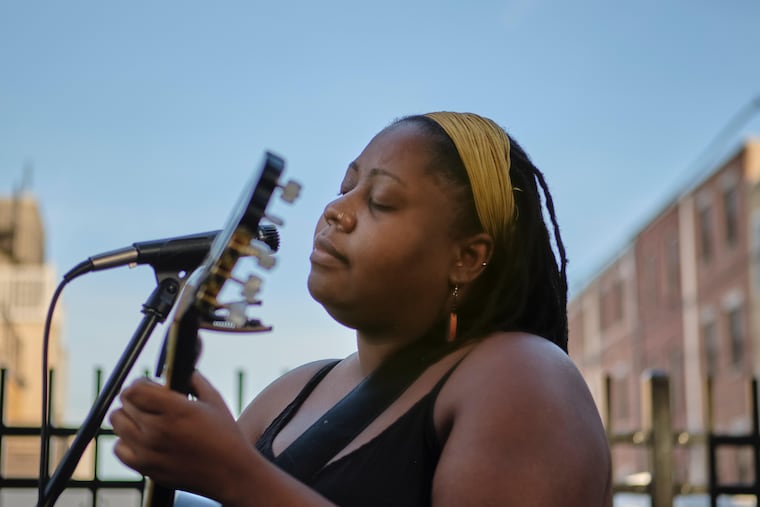The Haitian American musical performance that’s connecting Black resistance in Haiti and Philadelphia
“Philadelphia and Haiti are both undeniable beacons of Blackness,” said singer-songwriter Nathalie “Talie” Cerin.

Nathalie Cerin was made by two cities: Philadelphia and Port-au-Prince.
The singer-songwriter was born in Haiti but was raised between her birth town and Philadelphia her entire life. And while these two cities are thousands of miles away from each other, speak different languages, and have different cultures, the parallels between the two are glaring to Cerin: particularly that, she said, they “are both undeniable beacons of Blackness.”
On Tuesday, Cerin will be closing out an exhibition called “Chronicling Resistance” at the Parkway Central Library with a musical performance that pays homage to her Philly and Haitian roots.
“One of the themes that did come out with curators … was stories of Black resistance, of Black uprising, of state response and violence to Black uprisings and communities,” said Mariam Williams, the project director of Chronicling Resistance.
While Williams initially intended for Chronicling Resistance to be focused solely on Philadelphia, she quickly saw how relevant it was to branch out.
“It’s important to know … these resistance movements, but also to be able to contextualize them within how far-reaching white supremacy and the institutionalization of it really have been,” she said. “I hope when people see those connections, it will start to make disparate communities think more about solidarity.”
To Cerin, there’s a direct line between the two cities’ Black history and resistance. There are literal connections, Cerin said, such as colonizers fleeing to Philadelphia from Haiti when the Haitian Revolution started in the late 1700s.
“Philadelphia history has been so Black that it has taken back the narrative of the city.”
But Cerin loves the metaphorical connections, too, such as both places’ symbolism of Black freedom: Philadelphia was a destination on the Underground Railroad, and Haiti — the first independent Black republic in the Western Hemisphere — was also a destination for enslaved people in the South seeking liberation. Parallels can also be drawn between the outside perceptions of the two places, with both often described as poor and violent — and the conversations often lacking the root, systemic causes of both.
“Philly and Haiti feel like two representations of what white supremacy does to a people, and two representations of what Black resistance can look like to the rest of the world,” Cerin said.
Cerin’s music is focused on those parallels, both in style and storytelling. Her songs are ancient folk music with elements of soul, drawing from both Haitian and Philadelphian music scenes. Her lyrics are in both Haitian Creole and English. On Tuesday, she’ll be performing folk songs in addition to her original music, with some storytelling as well.
And while Cerin’s art draws the ties between Philly and Haiti, she also wants it to celebrate the inextricability of the two places, and all diaspora communities that have established a home in Philadelphia and become part of the city’s social and cultural fabric.
“I think when people think of Philadelphia culturally … you’ll think more immediately of Will Smith than you will Ben Franklin,” Cerin said. “Philadelphia history has been so Black that it has taken back the narrative of the city.”